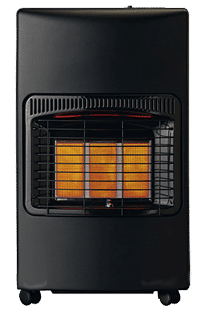Gas Heaters in Homes
Every time I see one of these heaters I get a sudden urge to find my sledge hammer and beat it to death.
In fact, the existence and use of these heaters in New Zealand totally mystifies me because of the following reasons:
They have a detrimental effect on air quality in the home.
Moisture
- Unflued gas heaters are the most expensive form of heating
- Unflued gas heaters release between 0.5 and 0.6 litres of water vapour every hour
- This increases the potential for mould growth, while dust mites thrive on the extra moisture
- The extra moisture makes you home colder, harder to heat, and increases the humidity of the air in your home
Likely Indoor Air Pollutants
- Gas heaters release harmful gases into your home, including, but not limited to:
- carbon monoxide
- nitrogen oxide
- sulphur dioxide
- benzene
- butadiene
- formaldehyde
- ultra fine particles
- and fine particulates (PM10 and PM2.5)
- These pollutants, once released indoors, are approximately 1000 times more likely to be inhaled into your lungs than the same pollutants released outdoors
- Using unflued gas heaters increases the severity of any pre-existing respiratory condition such as asthma, coughing, and wheezing
- If the heater fails, or is not used following the manufacturer’s specifications, the resultant carbon monoxide poisoning could lead to permanent disability or death
Other Dangers
- Cabinet gas heaters create a greater fire danger than other forms of heating
- These gas heaters are banned for sale and use in many developed countries
- Living in homes in which these heaters are used has been found to increase the rates of fevers, nausea, vomiting, headaches, sore throats, lung infections, skin conditions, back ache, aching joints, and fainting
- Cabinet gas heaters should only be operated in a room with the window open – improve your air quality
Even after all of the information is given, there will be a large number of people who will continue to use these heaters.
- They are cheap to buy, but they are usually second-hand and in poor condition
- Once the gas is paid for, there are no surprise costs as opposed to electricity
- There is a huge cost to health for people who use them and their families
Time in Your Home
On average, New Zealanders spend over 70% of their time in their home environment.
People at greater-than-average risk of health problems, such as young children and the elderly, are likely to spend an even greater percentage of their time at home and indoors.
WHO Recommendations
The World Health Organisation and New Zealand Ministry of Health recommend these
temperatures for your house:
A minimum of 18° during the day, or a minimum of 20° for more vulnerable groups like children, the elderly and people who are ill.
A minimum of 16° in your bedroom overnight.
What Can You Do?
- Stop using these heaters and encourage others to stop using them
- Don’t sell them or buy them off sites like TradeMe
To keep your home warm and comfortable, you need to keep it dry:
- Open doors and windows as often as possible
- Don’t use clothes dryers inside
- Don’t dry clothing inside
- Put lids on pots and use ventilation when cooking
- Ventilate bathrooms when showering
If you require information or wish to discuss indoor air quality in your home or workplace, send us a message!
